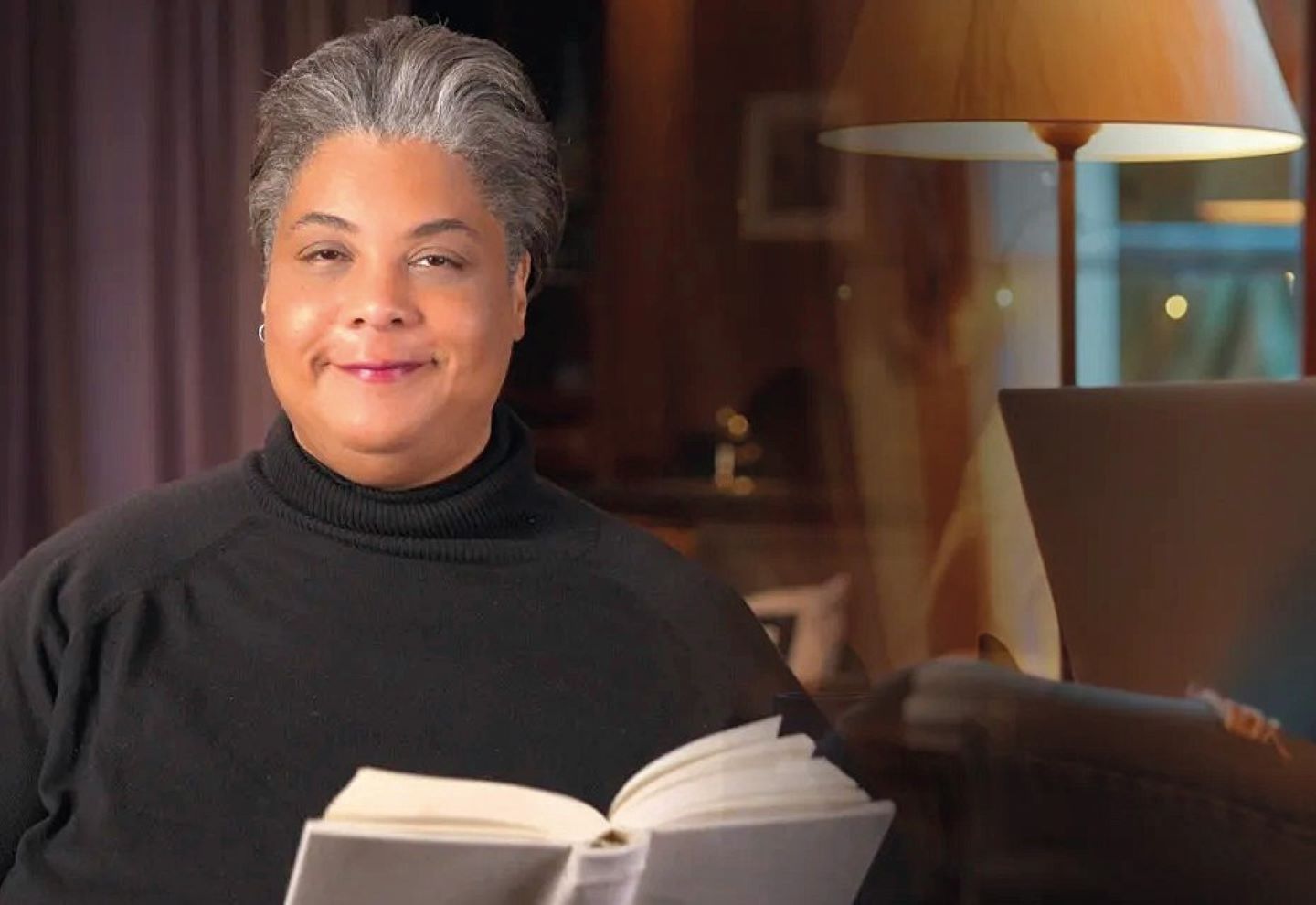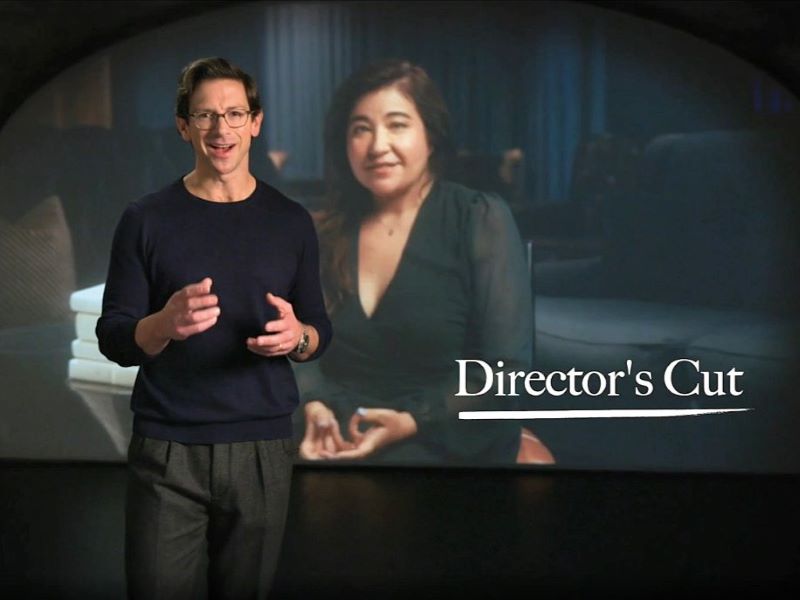
American author, professor and social commentator Roxane Gay is one of the Rebinders (All photos: Rebind)
There comes a time in the life of every serious reader when he or she must come to terms with Dickens, Tolstoy, Austen and Eliot. Even for those who consider themselves well read, there will always be a book that haunts them — an unattempted classic. Part of the reason may be the sheer amount of time it takes to complete an opus that transcends a lifetime. Would you devote your evenings to arguing with Socrates about morals or sparring with Dante about politics and spirituality? The urgent need of slotting historical literature into some sort of forced contemporary relevance is making these tomes less enjoyable. Wuthering Heights is withering.
No dedicated bibliophile ever feels fully secure in their own reading accomplishments. So, before you castigate yourself for not burying your nose in a book you should have, experts are telling us that classics are not austere endurance tests. In fact, an e-reading tool powered by artificial intelligence (AI) named Rebind, which utilises technology similar to ChatGPT that replicates dialogue between student and teacher, seeks to rekindle your love and faith in all the things good writing can do.
The idea came from philosophy professors — John Kaag (University of Massachusetts Lowell) and Clancy Martin (University of Missouri in Kansas City) — who spent the past couple of years asking prominent authors and public intellectuals if they would, for a handsome fee, contribute their thoughts and voices in the form of an AI chatbot. They then spent 20 hours interviewing these candidates, or “Rebinders”, about their chosen book, covering every possible question a reader may have when going through the text. The answers, from their viewpoints and criticism to what they imagine a character to be thinking, were fed into an AI software, which arranged them into commentary for a guided interactive conversation.
john_kaag_rebind_founder.jpg

Still confused? Think of Rebind as an AI chat infused with original, expert content or a director’s cut of your all-time favourite hits. In theory, a user can type into the prompter and “ask” decorated educator and wellness guru Dr Deepak Chopra to discuss a section of Selections from Buddhism by Noa Jones. The machine, after matching the text with the commentary of Chopra, will help illuminate the principles underlying the sutras in the book and highlight aspects a reader would not otherwise have appreciated and understood. Did you always have a hard time deciphering 19th-century romance in Edith Wharton’s The Age of Innocence? A doomed love triangle is better explained from the perspective of a (bad) feminist like Roxane Gay, whose award-winning writing landed her a Guggenheim fellowship and a column in The New York Times.
Current participating heavyweights include famed memoirist Chloé Cooper Jones (who dissects Heart of Darkness); Irish Booker Prize winner John Banville (Dubliners) and The New York Times Op-Ed editor Peter Catapano (The Great Gatsby). On Rebind’s website, poet and literary critic Margeret Atwood is slated to read A Tale of Two Cities in February 2025.
How will AI encourage those intimidated by canonical literature and reinvigorate their interests in rousing tales of dragons, beasts, tragedy, horror, passion and lust? In general, people are turning away from classics precisely because they have not had the right introduction. The digital platform, therefore, changes one’s approach to books by exercising the mind — you can highlight, react and make notes while personalising your conversation with the Rebinder. We can apprehend the lull or frustration of labouring over a paragraph while absorbing very little of it. Rebind, in the words of the founders, is the “antidote to the superficial reading we find ourselves inundated with”.
AI, two dreaded vowels to some, seems to present a menace to many disciplines at risk of being replaced by smart and autonomous machines. In the case of the arts, audiences are still looking for traces of the creator’s metaphorical hand — an inkling that the bot we interact with and any profound work of human creativity springs from a person’s imagination and bursts of insight. Rebind ensures this, as all participants are given royalties for allowing their voices to be cloned and manipulated.
Permitting a droid to co-pilot also raises the thorny question of originality. How much of the app’s reply actually belongs to a Rebinder? For transparency, the system offers an “X-ray” view of each response so you can determine what the actual transcript says and how it varies from the chat. If you need clarification on a sentence, say, “What do you mean by ‘getting up to japes’?” or reaction to a burning question, “Was Gatsby always such a jerk?”, the AI engine will provide the answer while letting you know the source, on and off script. The process is like a “Hogwarts newspaper that speaks back to you”, says Kaag.
The magic of technology lies in its malleability for expressing diverse perspectives in literature and, potentially, enabling greater access to a discipline which traditionally seems rarefied and exclusive. One can blame bots — spectral prodigies that can spit out a sonnet or a sonata — for all the anxiety that has engulfed our libraries and concert halls. But at least, they are dispelling the myths of antiquity, prompting us to revisit old heroes, foes and literary Valentines from our adolescence with renewed curiosity. To look back in time is to remember the first impressions these cultural touchstones made on the world.
Although there is only a beta waitlist for now, Rebind will serve as a boon for the uninitiated and those with a low tolerance for the passive-aggression that book clubs invariably incite. And if a computer’s interpretation of Louisa May Alcott’s coming-of-age classic Little Women falls short of expectations, one can always rely on the effervescent Saoirse Ronan to animate the joy of reading through her writer persona, Jo, in Greta Gerwig’s sensational film adaptation.
This article first appeared on Jul 1, 2024 in The Edge Malaysia.


